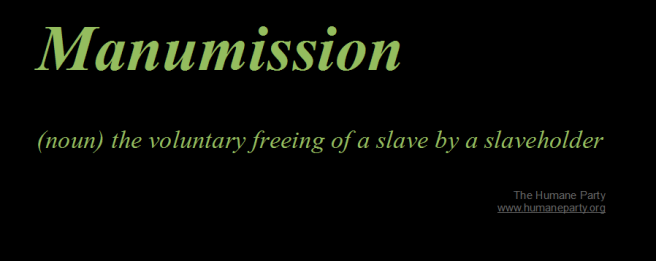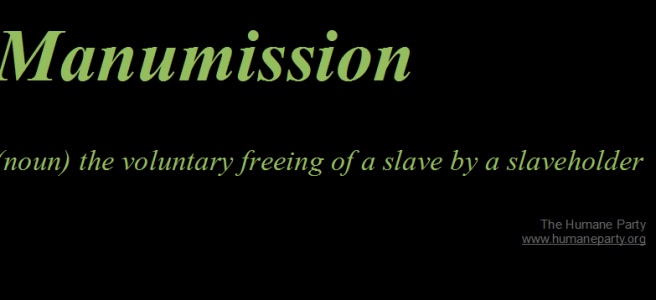Manumission
What does the word “manumission” mean?
The word “manumission” denotes the voluntary freeing of a slave by a slaveholder. Unlike abolition—an event which happens to an entire legal system—manumission is an event that happens in a specific case, namely, that of a particular, living creature (an “owner”*) releasing another particular, living creature (a “slave”) from slavery.
Example: Jane, a slaveholder, is the “owner” of Bill, a slave who is “owned” by Jane; one day, Jane decides to—and does—release Bill such that Bill is, thereafter, neither a slave of Jane nor a slave of anyone else. That event—the freeing of Bill by Jane—is manumission.
Note that manumission permanently changes the status of the freed slave from property to personhood. If a slaveholder merely sells a slave to another slaveholder, the slave remains a slave, and manumission has not occurred.
Note also that if a slave is freed by abolition of the institution of slavery itself within the given jurisdiction, the slave’s status changes to that of a free being, but manumission has not occurred, because the “owner” himself or herself did not willingly free the slave. Rather, the freeing of the slave was forced upon the “owner”.
See also, The Humane Herald, Distinguishing Abolition, Emancipation, and Manumission
_____
*The Humane Party does not recognize “ownership” of one living creature by another as a valid legal relationship. All purported cases of one sentient being’s “ownership” of another sentient being are, in fact, merely cases of coercion, oppression, and captivity.


You must be logged in to post a comment.